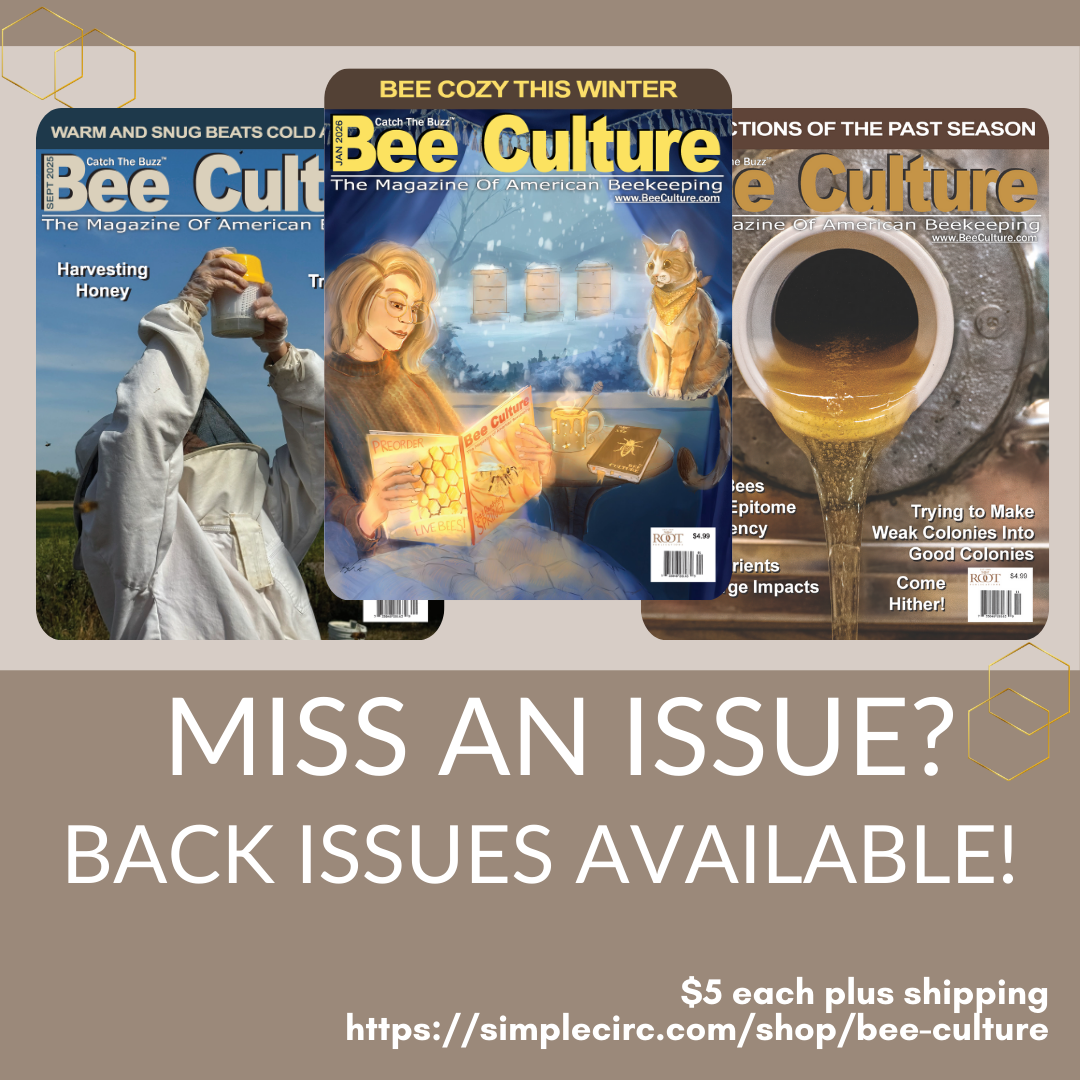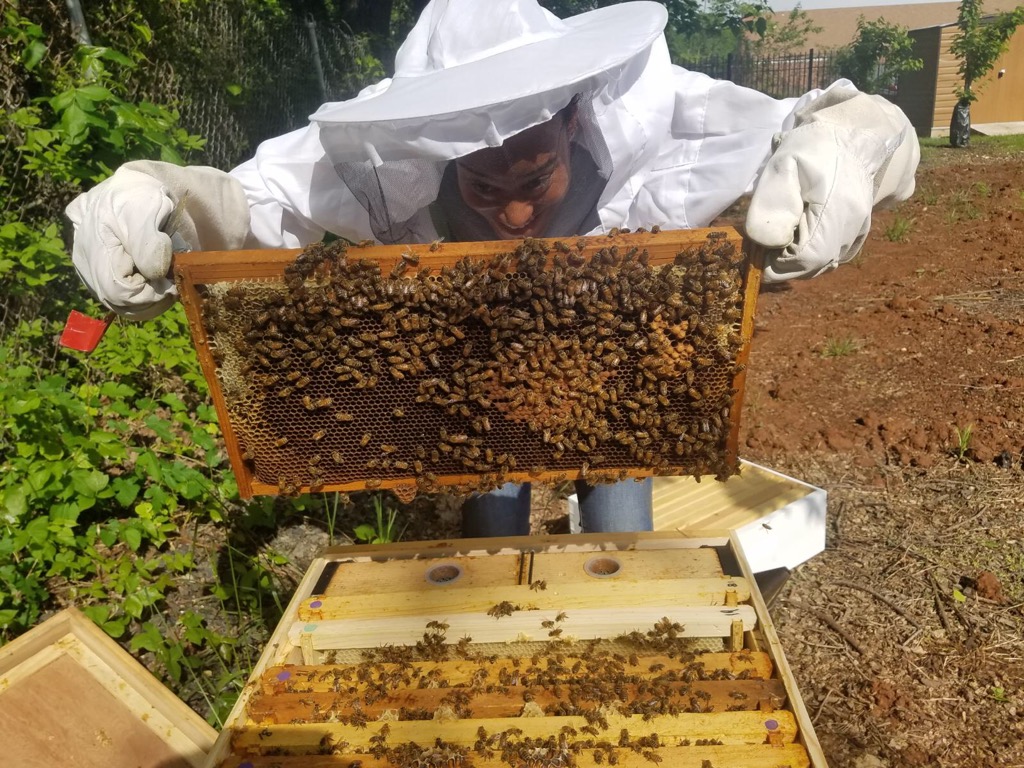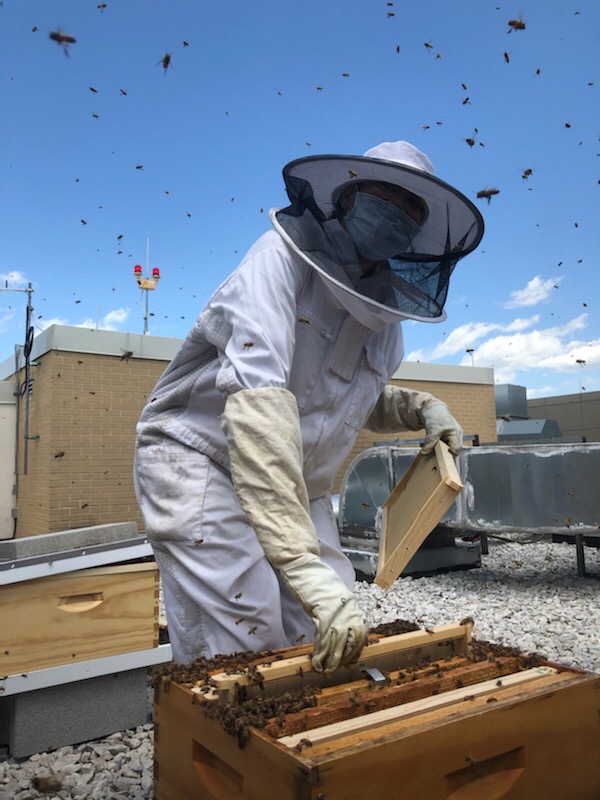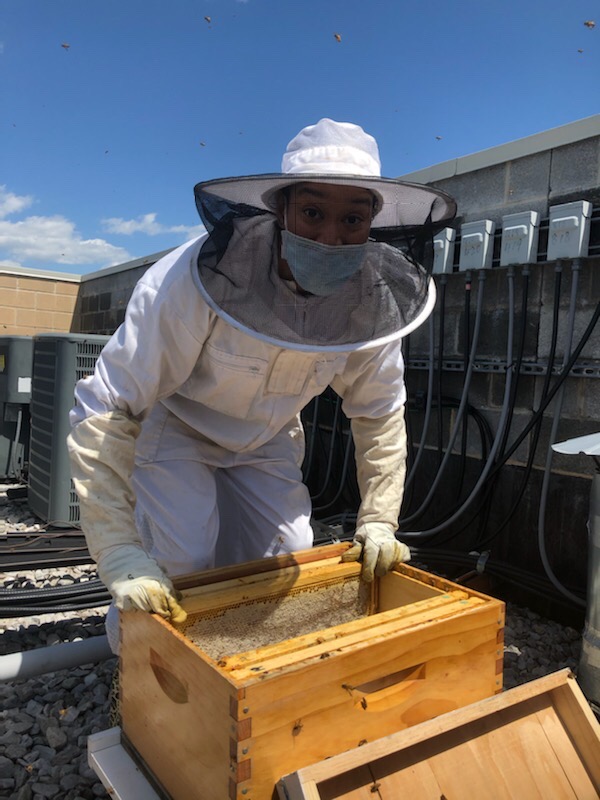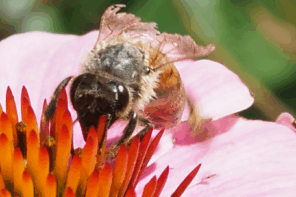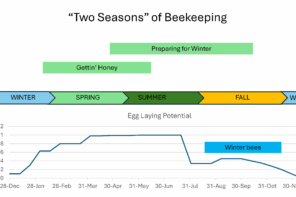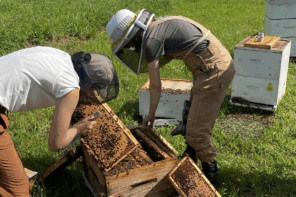Click Here if you listened. We’d love to know what you think. There is even a spot for feedback!
Read along below!

Cafini Z is a concierge beekeeper and urban farmer in the District of Columbia, who has been trained and worked in agriculture since 2014. When not doing something bee or plant related, Cafini can be found enjoying being a parent and studying economics, finance and politics
Black History Month
Cafini Z
When I was first asked to write an article for Black History month, it was with emphasis on recognizing all beekeepers contributing to our industry at all levels, and I prefer looking at things from a drone congregation area point-of-view, so this will be an inclusive commentary focusing on the parallels between the interdependence of humans and honeybees and the interdependence of Black Americans and the rest of this nation’s populace.
As a Black beekeeper living and working in a very international, yet very typically American city – the United States capital – it is easy for me to notice connections that many others probably would not make. All of the apiaries that I manage are in wealthier parts of town where people who look more like me can no longer afford to live and/or have been excluded from accessing, despite the use of our labor and destruction of our communities to build and maintain these spaces. The built landscape of the District of Columbia, much of which is well over a century old, was originally built and maintained by enslaved Black people after being surveyed and designed by a free Black man. Yet over the generations since then, most descendants of enslaved Africans living in DC have been repeatedly pushed further and further south and east within the city or pushed out altogether into substandard living and disgraceful educational situations by red-lining and other less overt forms of racial discrimination. Similarly, even though we humans depend on honey bees and other pollinators for two thirds of our nutrition, we push them around the nation in trucks, subject them to an array of toxins because we are mono-cropping or afraid of being stung, and most people (non-beekeepers) barely bat an eye at the fact that honey bees manage to produce profitable crop yields and survive all this while losing upwards of forty percent of their populations each year.
Along with building the physical foundations of Washington, DC among other antebellum cities, enslaved Africans and their descendants both produced for and served as the foundation of this nation’s economy. Most of the food, raw materials, much of the music and art, many inventions and ultimately the wealth of the elite in the US was initially produced by Black people’s hands, all while those reaping the most benefit from these contributions comfortably segregated themselves from and slandered the very source of their wealth. Unfortunately, honey bees have endured a similar fate. After being brought to North America to provide pollination services and especially honey to humans, too many of my fellow urbanites and suburbanites have come to detest having honey bee hives in their neighborhood on the odd chance that someone gets stung, or because a swarm almost moved into a local reporter’s attic – as if all honey bees live to do is sting folks. There is also much credence given to the fact that in some ways, honey bees have pushed out and helped reduce native bee populations and therefore we should not be so concerned with “saving” them. Now, I of course have nothing but love for native bees, but would we be able to produce as much food with as much variety as we do without honey bees? Would this country be as rich as it is without having enslaved Africans?
In considering answers to those questions it may become clearer just how much we all need each other – human and honey bee alike – and that being realized, how much we all need each other to be healthy and well. Like honey bees are forced to endure more pesticides and insecticides than would allow them to sustain instead of lose around forty percent of their populations every year, most Black people in the District as well as cities across this nation have been forced to live with lead water pipes in food deserts, in closest proximity to polluting energy and manufacturing facilities, landfills, superfund sites, busy train tracks and even shallowly buried undetonated bombs around the many civil war forts that line the city. All of this of course takes a toll on our health, especially that of our children, leading to higher rates of cancer, asthma, heart disease, fatal accidents, ADHD and behavioral problems, which in turn only adds to the country’s ballooning healthcare costs and more deeply entrenched poverty. Over more recent years, some of these detrimental determinants of human health have been addressed, just as some crop sprays have been banned and at least in DC, outreach and education is provided by local beekeepers to the broader community about the benefits of urban honey bee hives and how we can all live more harmoniously with bees and the natural environment, but there is definitely much more that needs to be done.
The point is, we are all better off – regardless of species – when we acknowledge the contributions and hefty sacrifices that honey bees and descendants of enslaved Africans have made and continue to make, and work to substantively include all of us in decision-making that considerably impacts all of our lives, rather than only trying to control us out of prejudicial fear of being stung.
Cafini Z is a concierge beekeeper and urban farmer in the District of Columbia, who has been trained and worked in agriculture since 2014. When not doing something bee or plant related, Cafini can be found enjoying being a parent and studying economics, finance and politics.


